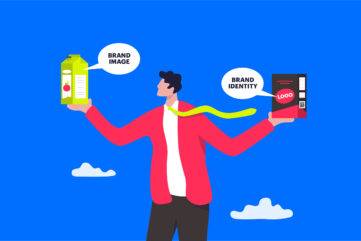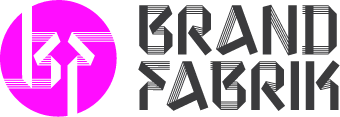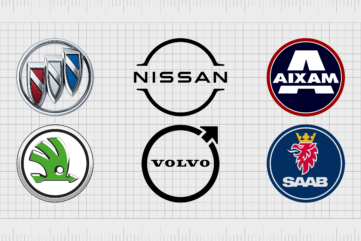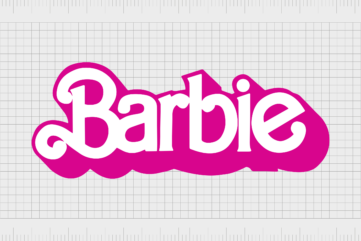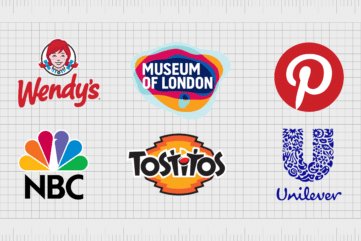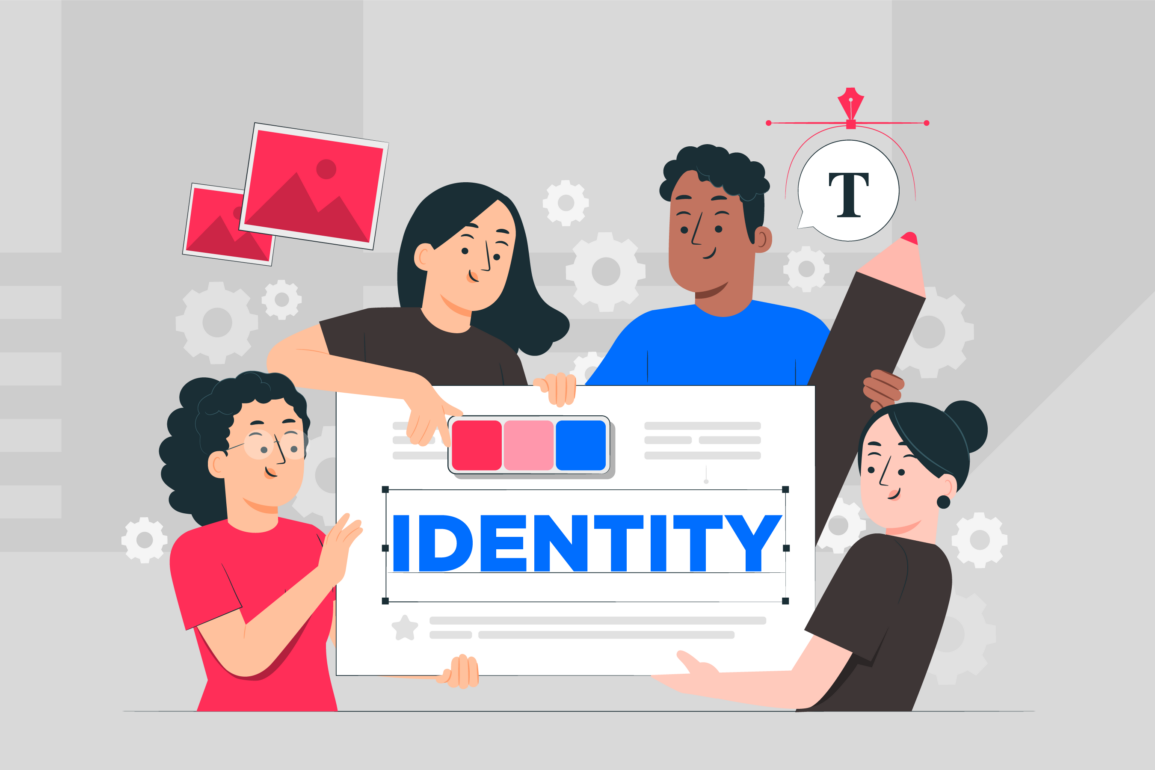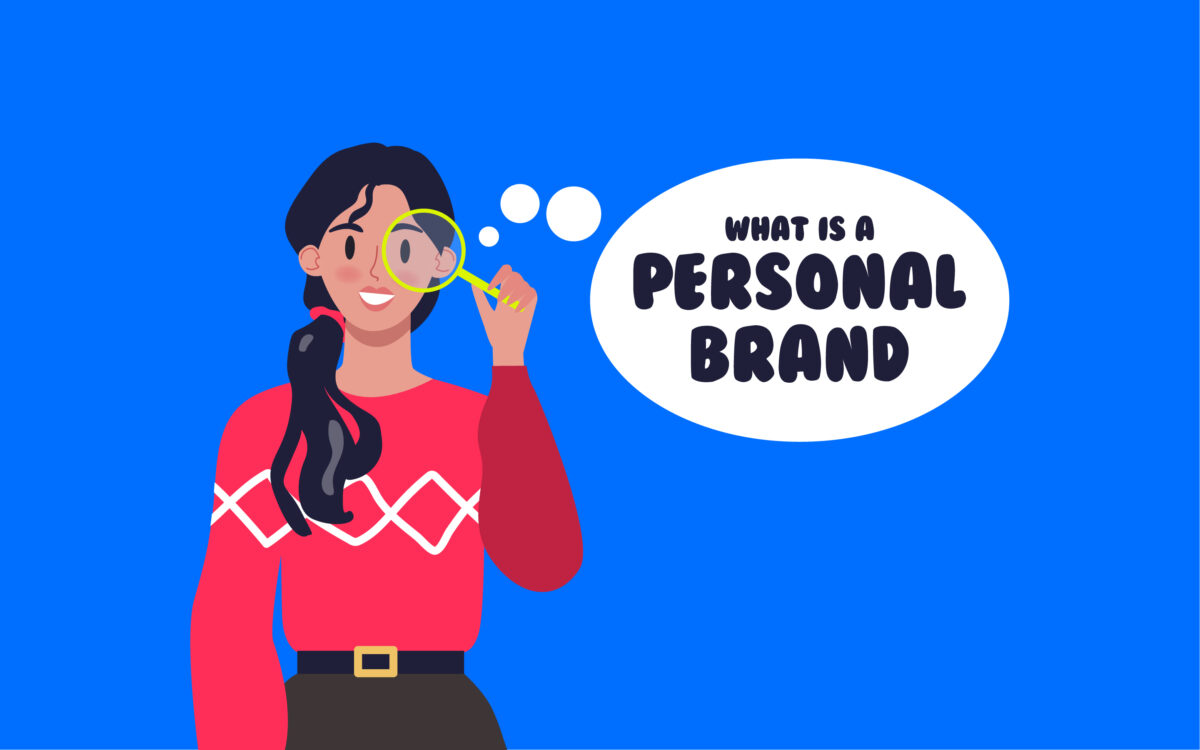What is personal branding and why is it important?

What is personal branding? If you’ve ever worked with a recruitment industry, built your own online portfolio, or connected with other thought leaders at a networking event, you’ve probably heard the term. Personal branding isn’t a new concept, but it’s becoming increasingly important.
A personal brand is essentially how you present yourself to the world around you. It’s your method of highlighting the core characteristics, qualities, and values that make you unique.
Just as major businesses around the world use branding to connect with customers and differentiate themselves from competitors, people can leverage the power of the brand too.
A strong personal brand is what tells employers why you’re a beneficial addition to their team. In today’s world of remote and freelance work, it’s also how entrepreneurs, members of the creator economy, and innovators capture potential clients.
Today, we’re going to take a closer look at what it really means to develop your own personal brand, capable of resonating with your audience, and strengthening your reputation.
What is a personal brand? An introduction
So, what is a personal brand?
Basically, it’s the brand image or identity you create for yourself as a professional, thought leader, and human being. While business brands imbue companies with human characteristics and qualities, personal brands showcase the reality of who you actually are.
Your personal brand is how you influence what people think and feel when they interact with you. You can use it to differentiate yourself from other professionals in your space, improving your chances of acquiring a new job.
You can also use personal branding to demonstrate your unique combination of skills and abilities to clients and customers.
Done well, a personal branding strategy will help you to grab the attention of the right people, and position yourself as a leader in your field.
It’s worth noting, the definition of personal branding has changed over the years. Before the advent of the internet, your personal brand would revolve heavily around how you present yourself in person. The clothes you wore, your business card, even how you spoke would influence opinions.
Today, these offline elements still count towards an effective personal brand, but innovators and entrepreneurs also need to ensure their digital presence matches the identity they want to develop.
Your personal brand now includes everything from your online portfolio or personal website, to your LinkedIn and social media presence, the content you create online, and more.
What is personal branding? Personal branding definition
While a “personal brand” is the term used to define the image you present to the world, personal branding is the strategies and techniques you use to refine that image. The reality is, in today’s hyper-connected world, everyone has a personal brand.
The people you meet or interact with online, through social media and other channels, will form an opinion of you based on numerous factors.
If you aren’t actively cultivating a specific brand identity, people will define you by how you communicate, the content you share, and the people you connect with. Even the image you create using color palettes on your website, images, and graphics can all contribute to your personal brand.
Personal branding is a way of marketing yourself to the people whose opinions matter most.
The public perception of an individual evolves as they invest in their personal branding strategy, using new methods to showcase their skills, values, and opinions.
Actively working on personal branding is how you highlight your strengths, demonstrate your passions, and form connections with relevant people. It’s how you distinguish yourself from the competition, and strengthen your position in your industry.
Why is personal branding important?
So, why is it so important to build a solid personal brand?
The simple answer is it gives you an edge in your industry. Personal branding can be an excellent way for job seekers to attract the attention of employers, and differentiate themselves from other candidates. But it’s not just a great way to boost your chances of employment.
Developing your own brand is also a fantastic opportunity to grab the attention of clients, make yourself more appealing to potential partners, and enhance your online reputation as a content creator. Personal branding is even important when developing a business brand.
Just look at Elon Musk for example. His personal brand is more powerful than the brands of all of his companies (Tesla, SpaceX, etc.) combined.
This shows a personal brand not only gives you a competitive advantage as an individual, but it can also make any businesses you develop more attractive to customers, shareholders, and employees too.
Fundamentally, building a good reputation with a personal brand:
Strengthens connections with your ideal audience
A personal brand, just like a business brand, is an opportunity to create an emotional connection with the right people. It helps you to demonstrate not just your expertise, but your values and character traits to clients, customers, followers, and future employers.
Differentiates you from the competition
It’s not just businesses that have to distinguish themselves from competitors today. In a competitive talent market, or the freelance world, you also need to be able to stand out from the crowd. A personal brand sets you apart from competing candidates, freelancers, professionals, and thought leaders.
Unlocks opportunities for growth
Building a personal brand can be an excellent way to open the door to new opportunities. For instance, if you can develop a strong online presence, you can distinguish yourself as a thought leader, and capture the attention of people looking for influencers, mentors, or guidance.
Builds authenticity
Building your own brand and living according to the image you want to convey helps you to create a more authentic, reputable identity. It can make employers and customers feel more inclined to trust you, and pave the way for better opportunities in the business world.
Enhances business brands
A good personal brand can also improve the impact of your business. Most of today’s customers evaluate the reliability and credibility of a company by looking at its founders, or key leaders. Your personal branding statement is a great way to give your company a more human essence.
Finding your own definition of personal branding
Defining your own personal brand is a process that takes time and commitment. Leaders like Gary Vanyerchuk and Richard Branson didn’t get to where they are today overnight.
You need to be willing to put intentional effort into discovering the core components of your personal brand, and showcasing them to your target audience.
So, how do you answer the question: “what is personal branding?” for yourself?
1. Start with your brand foundations
Developing a personal brand isn’t too dissimilar to creating a brand for a business. It starts with defining the “essence” of your identity, or what you stand for as a person.
While in business branding, you might build your company’s identity around unique selling propositions and differentiating features, in personal branding, you’ll focus on your strengths, passions, and abilities.
Ask yourself who you actually are as a person. What are your skills and credentials, your passions and interests, and your core beliefs and values? What can you do as a professional in your field, and what drives you towards your goals?
From here, you can start developing some core components that will guide your personal brand statement, such as:
- Your brand vision: What do you want to be known for? How do you want to be differentiated from the average person? What’s your core purpose?
- Your brand mission: Why are you building your personal brand? Who do you want to connect with or influence? What do you want to accomplish?
- Your brand message: What kind of message are you trying to send? What’s your tone of voice, and core brand personality?
Depending on the goals of your personal branding strategy, you may think about other things too, such as your brand image. What kind of visual identity do you want to build, based on your overall look, your fashion choices, and even your personal website design strategy?
2. Know your target audience
Every brand has a specific target audience – not just business brands. When you start to describe your personal brand, and develop your own definition of personal branding, you’ll set specific goals for what you want to accomplish.
These goals will revolve around the target audience you want to reach.
For instance, if you’re trying to unlock new employment opportunities, your target audience might be employers from a specific industry.
If you’re hoping to create revenue as a content creator, freelancer, or small business owner, you might be focused on attracting potential customers from a specific niche.
Ask yourself who’s opinion will matter most to you in the years to come.
Defining your target audience will help you to determine the language you should use to make the right first impressions, how you should connect with other people, and where you need to build your presence, such as on search engines, a YouTube channel, or social media profiles.
You can even consider creating client or employer profiles, looking at:
- Demographics: Age, gender, profession, education, and income.
- Pain points: Fears, concerns, and issues your audience might face.
- Desires and aspirations: The goals and target objectives of your target audience.
3. Write your personal brand statement
One of the best ways to answer the question, “what is a personal brand” for yourself, is to write a statement that encompasses all of the key components of your identity.
Your personal brand statement is essentially a simple elevator pitch, which highlights your core characteristics, who you are, and what you offer to your target audience.
While there’s no one-size-fits-all strategy to creating the perfect personal branding statement, the best examples often share a few characteristics.
Your statement should concisely and clearly show:
Who you are
How do you identify yourself? For instance, Joe Pulizzi calls himself a “content marketing evangelist”. In other words, he’s a person who believes in the power of content, and encourages others to develop their passion for the content marketing industry.
What you do
What are your skills, and what do you offer to your target audience? What’s your value proposition as a professional. For example, Aaron Orendorff promises to “save the world from bad content.”
How you do it
Finally, outline how you deliver solutions to your customers. Nicholas Kusmich, the Facebook advertising strategist, aims to help businesses scale revenue with a proprietary process known as “contextual congruence.”
4. Optimize your personal brand image
Once you have an idea of what your personal brand statement is, it’s time to optimize your image to match that declaration. An effective personal branding strategy involves knowing how to position yourself in front of your target audience, and showcase your core qualities.
The “image” you build will depend on the kind of professional you are. For instance, if you’re trying to develop a positive image as a motivational speaker, you might focus on developing your in-person appearance to make yourself look more authoritative and professional.
If you’re trying to cultivate an identity as an influencer, you’d focus on building your social media presence.
When developing your personal brand image, it’s worth thinking about your online and offline presence.
Some key points to consider include:
Personal logos
Do you have a distinct emblem or icon that identifies you to your target audience? If so, you can use this across your social media channels, your website, and even on your resume or business cards.
Website design
If you’re building a website or portfolio for your personal brand, think about how the colors and images you use will convey key aspects of your personality to your audience. How can you make your unique identity shine?
Personal image
How do you present yourself to others offline and online? How do you dress yourself, show confidence, and demonstrate authority? What do your professional photos and headshots say about you?
5. Develop your visibility strategy
Next, you need to ensure people are seeing and interacting with your personal brand. If you’ve developed a website or social media presence, this is a good place to start. Publishing content on your own platforms is a great way to draw attention to your values, your brand mission, and more.
A good content strategy will help you to demonstrate your thought leadership, and validate your knowledge and skills. Think about how you can share content on social media, your blog, and even through your own personal newsletter to grab attention.
Other ways to boost your visibility with an effective personal branding strategy include:
Interviews and PR
If you’re a thought leader in your space, you can share great ideas and stories about your hard work in your field with interviews, or guest spots on podcasts. You could even speak at a local industry event.
Partnerships and joint ventures
Connect with other people in your field and advertise yourself to their target audience. Join forces with another professional on your own podcast or video series, or create a whitepaper or report with some other specialists.
Guest blogging
Consider applying to share posts and content with other audiences on platforms relevant to your industry or niche. This is a great way to make your name more prominent in the search results when clients and employers search for you.
Refining your self-branding definition: Personal branding tips
As mentioned above, personal branding takes significant time and work, but it does pay off if you’re willing to make the effort. Learning how to develop your own definition of personal branding and share it with your audience is a phenomenal way to unlock new opportunities in your industry.
However, your career success and your future will depend on how well you can leverage and retain your personal brand.
Here are some quick tips to keep in mind:
Prioritize consistency
While your personal brand can evolve over time as you develop new skills and values, it’s important to be relatively consistent.
Once you identify who you are and what you stand for, make sure you’re sending the same message to your audience across every channel, both online and offline.
A consistent approach will make your personal brand seem more authentic and reliable.
Be honest
Personal branding is an exercise in marketing, but that doesn’t mean you should be using hyperbole or falsehoods to engage your audience. The best personal brands are impactful because they’re honest and authentic.
Be realistic about your abilities, the promises you make to your audience, and your strengths.
Live your brand
Crucially, your actions and behaviors need to match the image you’re trying to create for your personal brand.
If you position yourself as a leader in your field, you need to act like one, by constantly learning new things, connecting with other experts, developing your skills, and sharing your insights.
Monitor your personal brand
Taking control of your personal brand is difficult if you don’t know how people already perceive you. Monitor how people respond to you online and offline. Ask people how they perceive you, and make sure you’re sending the right message.
Build your network
Who you know matters massively when you’re building a personal brand. The people you connect with, and their reputation will also influence how other people perceive you.
Additionally, networking regularly, both online and offline, will give you more opportunities to showcase your personal brand to others.
Personal branding examples from famous thought leaders
Answering the question “what is personal branding?” can be difficult for beginners. If you’re a beginner, it can be helpful to check out some examples from other innovators in your space first. Here are some great personal branding examples to inspire you.
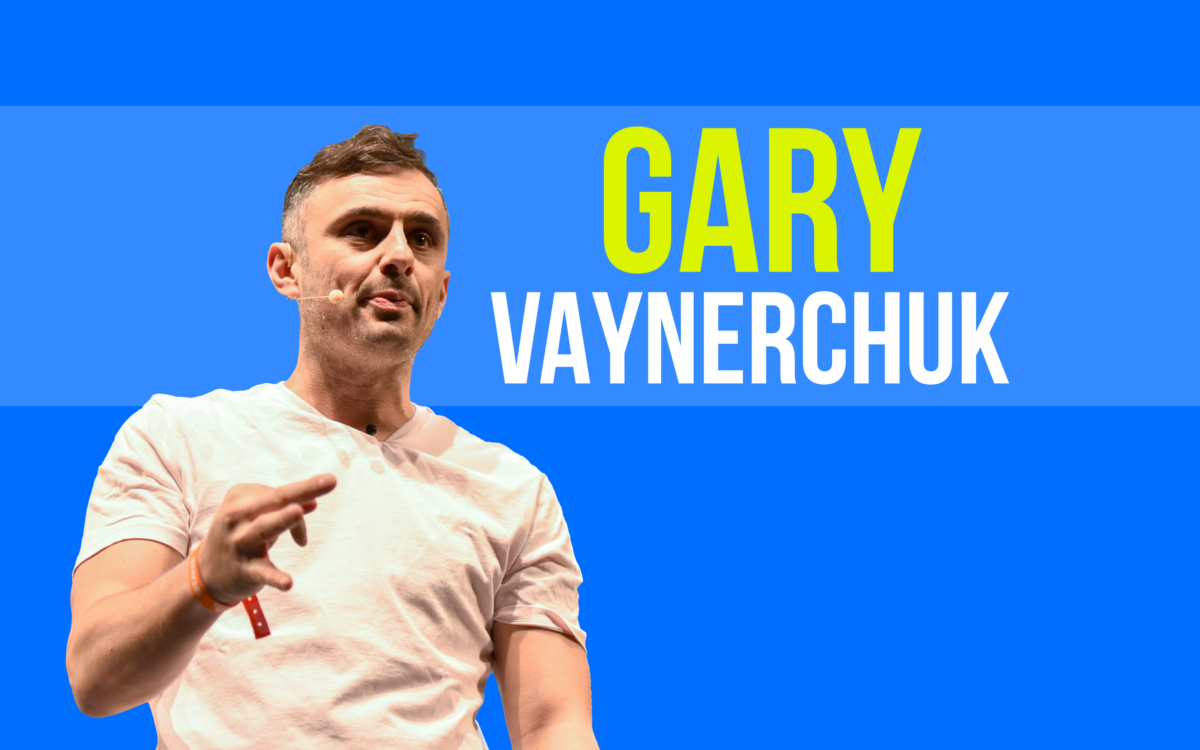
1. Gary Vaynerchuk
Gary Vaynerchuk’s personal brand narrative revolves around constantly inspiring people to achieve their professional goals. He’s an innovator in his space, ready to experiment with new tools and strategies as they emerge in the marketing landscape.
He’s not afraid to share his insights and knowledge with everyone, through videos, content, and social media posts. Gary also looks for consistent ways to demonstrate his thought leadership, by speaking at events, hosting his own conferences, and even creating online courses for his followers.
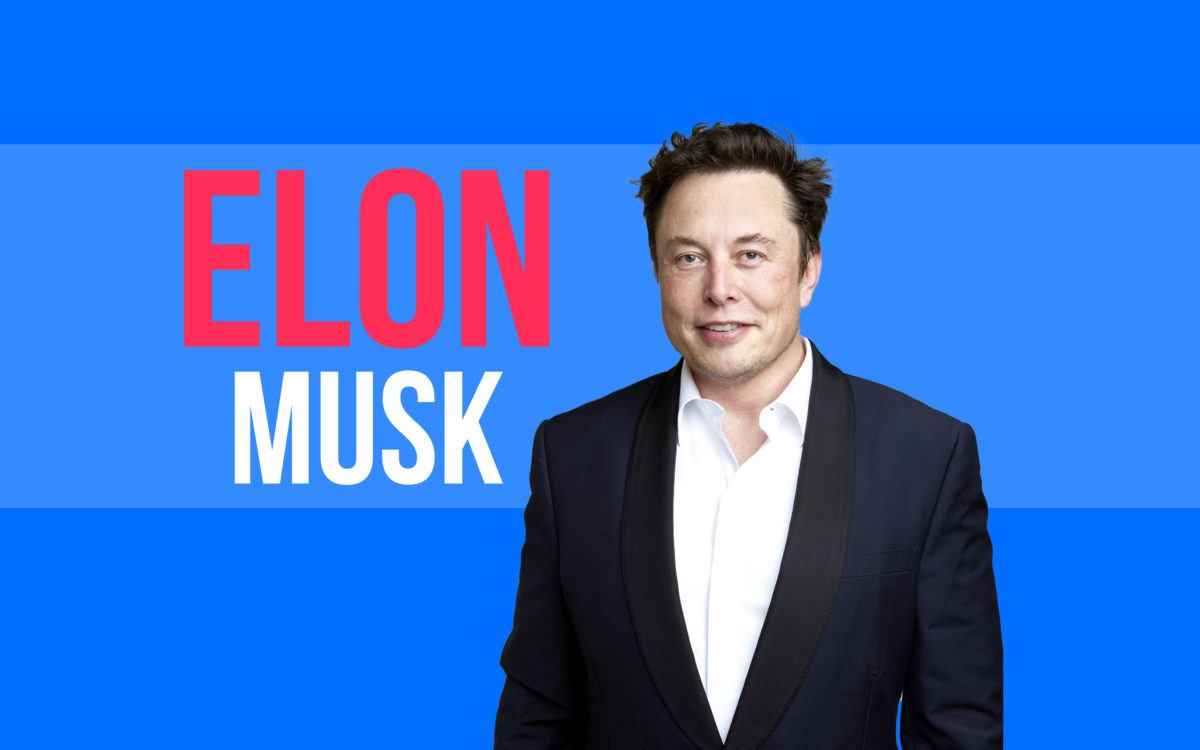
2. Elon Musk
Elon Musk positions himself as a risk taker and thought leader with his personal brand. He shows himself as being committed to sustainability and innovation.
Constantly thinking outside of the box, Elon suggests no-one should be afraid of experimentation. His playful and humorous attitude doesn’t always resonate with his entire audience, but it sets him apart in the entrepreneurial world.
Elon’s somewhat eccentric approach to personal branding has not only made him an icon to customers around the world, it’s also strengthened the value of his businesses too. Many supporters of companies like Tesla love the company because of Elon Musk.
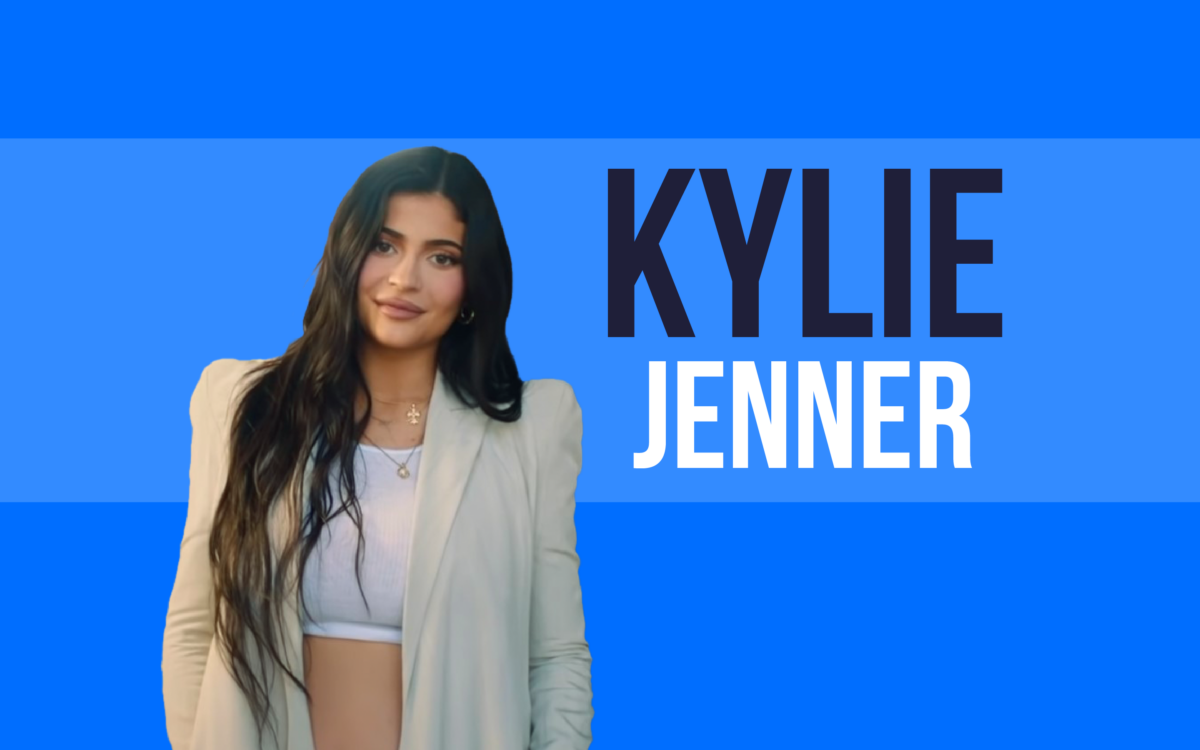
3. Kylie Jenner
Kylie Jenner is a big believer in personal branding. She constantly shares insights from her personal life with her followers on social media to demonstrate authenticity and transparency. She’s also committed to connecting with other companies to help strengthen her image.
However, Kylie is extremely careful about the businesses she partners with, too.
Kylie ensures every partnership or influencer campaign she gets involved with strengthens her image as a fashion and beauty leader. She wants to be seen as a beacon of luxury, a lifestyle idol, and a voice of inspiration.
While she doesn’t appeal to everyone, Kylie knows how to leverage the power of personal branding to her advantage.
Create a powerful personal brand
By now, you should be able to answer the question “what is a personal brand?” with some confidence. Hopefully, the insights above have helped you to define why business owners, entrepreneurs, and other professionals are so invested in personal branding in today’s digital age.
Now you know what personal branding is, and why it’s so important, you can begin to think about how you can cultivate your own brand identity. After all, defining your own personal brand is an excellent way to take the next step in your career or profession.
Whether you’re trying to attract more of the best clients to your freelance business, or you’re looking for a new way to strengthen your employability and earning potential, personal branding can be a powerful way to reach your goals.
If you need more advice on personal branding, reach out to the team here at Fabrik, for personalized support.
Fabrik: A branding agency for our times.

We’ve built our reputation, building brands for other people.
Do you need to bring a new brand to life or breathe new life into an existing one? If so, let’s start a conversation
Now read these:
—How to rebrand yourself on social media
—Best personal brand statement examples
—Steps to reinventing your personal brand
—Personal branding examples for students
—The best books on personal branding
—Your guide to personal logo design





